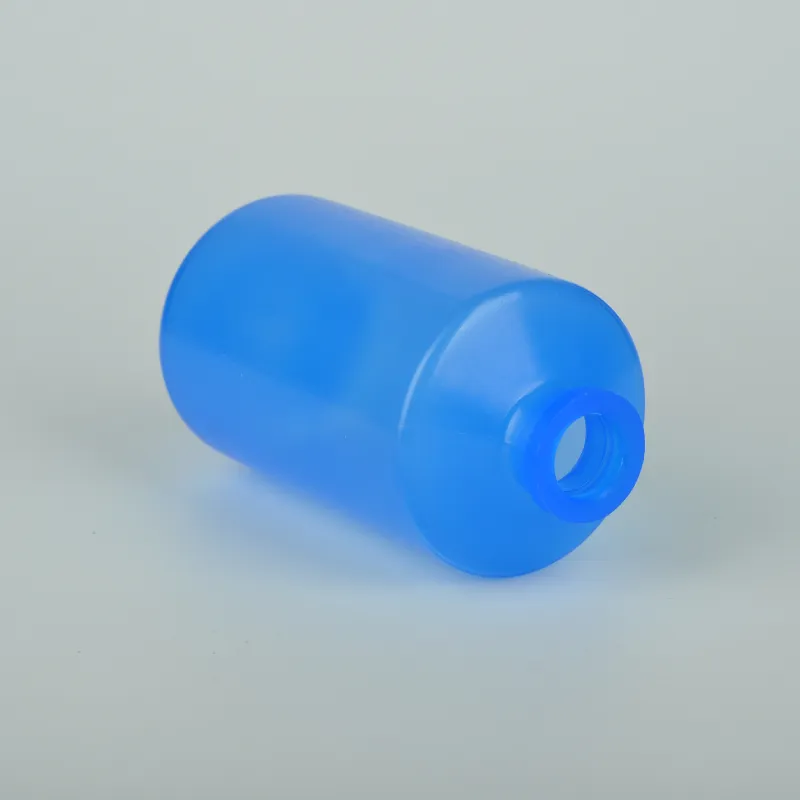injectable bottle
The Importance and Innovation of Injectable Bottles in Modern Medicine
In the realm of healthcare, the importance of injectable bottles cannot be overstated. These versatile containers serve as vital instruments in the delivery of medications, vaccines, and therapeutics, ensuring safe and effective treatment for patients around the globe. As the demands of modern medicine evolve, so too does the design and functionality of injectable bottles, fostering innovations that enhance usability and safety.
Understanding Injectable Bottles
Injectable bottles are typically glass or plastic containers designed to hold injectable drugs in a sterile environment. Their primary purpose is to store medications that are delivered via injections, allowing for precise dosing and minimizing contamination risks. The bottles usually come with rubber stoppers that can be punctured by a syringe, ensuring that the medication can be extracted cleanly and efficiently. This design not only protects the integrity of the drug inside but also provides a mechanism for healthcare providers to administer the medication sterilely.
The Role of Injectable Bottles in Vaccine Delivery
One of the most critical applications of injectable bottles is in the delivery of vaccines. With the recent global pandemic underscoring the importance of immunization, the role of injectable bottles has gained renewed recognition. Vaccines often require careful handling and storage, and disposable vials are designed to accommodate these needs. Innovations in this area have led to the development of multidose vials that can safely hold several doses of a vaccine. This design reduces waste and facilitates mass vaccination campaigns, making it easier for health authorities to respond quickly in times of public health emergencies.
Safety Features and Technological Innovations
To enhance safety, recent developments in injectable bottle technology have included the incorporation of tamper-evident seals, which help to ensure that medications have not been compromised. Additionally, with advancements in materials, manufacturers are now producing more durable and lightweight bottles, which are easier to transport and handle.
injectable bottle

Moreover, some injectable bottles are now designed to be compatible with automatic filling and dispensing machines, increasing efficiency in pharmaceutical manufacturing. This automation minimizes human error and helps maintain the sterile conditions necessary for drug integrity.
Sustainable Practices in Injectable Bottle Production
As environmental awareness grows, the production of injectable bottles is also undergoing scrutiny and innovation. The pharmaceutical industry is increasingly focusing on sustainability by opting for eco-friendly materials and developing recycling programs for used bottles. Some manufacturers are exploring bioplastics derived from renewable resources, reducing reliance on fossil fuels and minimizing ecological impact.
Challenges and Future Directions
Despite the advancements in injectable bottle technology, challenges remain. The healthcare sector must continually address issues such as preventing counterfeit medications and ensuring the security of drug storage. Manufacturers are investing in anti-counterfeiting technologies, such as holograms and advanced labeling systems, to protect patients and maintain trust in pharmaceutical products.
Looking ahead, the future of injectable bottles will likely explore smart technologies. The integration of RFID tags could allow for real-time tracking of medication inventory, enhancing safety and ensuring that patients receive the correct treatments. Additionally, research into personalized medicine could drive the development of single-use vials tailored to individual patient needs, promoting precise and effective treatment options.
Conclusion
In conclusion, injectable bottles play an indispensable role in modern healthcare by facilitating the safe delivery of medications and vaccines. As technology continues to evolve, these bottles are not only becoming safer and more efficient but are also embracing sustainable practices. The future of injectable bottles will undoubtedly be shaped by ongoing innovations that enhance patient care, safety, and environmental stewardship, paving the way for a healthier world.
-
Aesthetic Makeup Spray Bottles | Fine Mist Empty RefillableNewsAug.19,2025
-
White Plastic Veterinary Vaccine Vials | Lab Liquid BottlesNewsAug.18,2025
-
Plastic Medicine Liquid Bottle: Secure Flip Top Drug VialsNewsAug.17,2025
-
Durable 250ml Blue Plastic Vaccine Vial for Lab & Vet UseNewsAug.16,2025
-
Sterile Virus Sample Tubes: Secure & Reliable Specimen CollectionNewsAug.15,2025
-
White 250ml Plastic Vaccine Vial for Lab & Vet MedicineNewsAug.14,2025
























